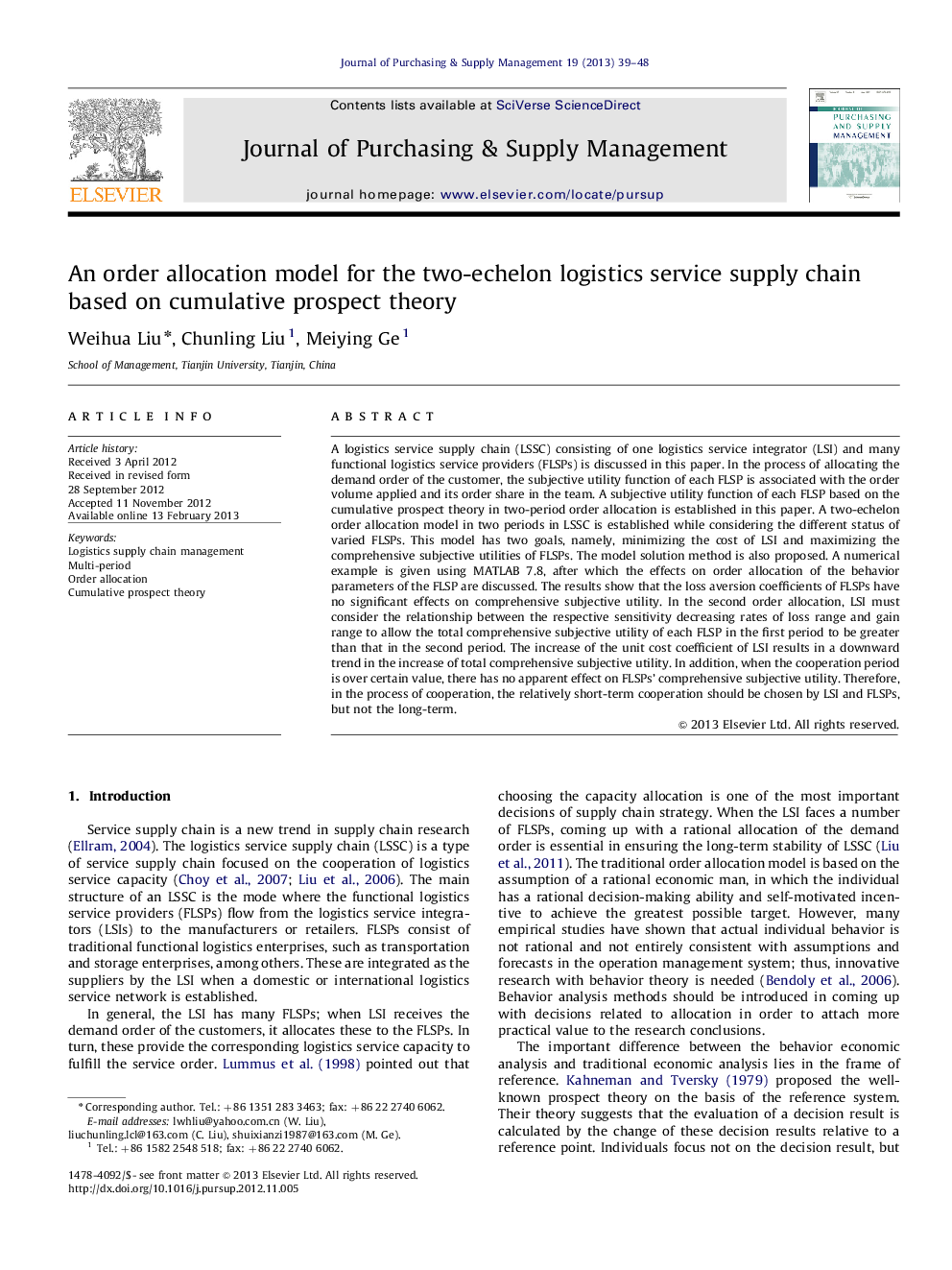| کد مقاله | کد نشریه | سال انتشار | مقاله انگلیسی | نسخه تمام متن |
|---|---|---|---|---|
| 1020784 | 940935 | 2013 | 10 صفحه PDF | دانلود رایگان |

A logistics service supply chain (LSSC) consisting of one logistics service integrator (LSI) and many functional logistics service providers (FLSPs) is discussed in this paper. In the process of allocating the demand order of the customer, the subjective utility function of each FLSP is associated with the order volume applied and its order share in the team. A subjective utility function of each FLSP based on the cumulative prospect theory in two-period order allocation is established in this paper. A two-echelon order allocation model in two periods in LSSC is established while considering the different status of varied FLSPs. This model has two goals, namely, minimizing the cost of LSI and maximizing the comprehensive subjective utilities of FLSPs. The model solution method is also proposed. A numerical example is given using MATLAB 7.8, after which the effects on order allocation of the behavior parameters of the FLSP are discussed. The results show that the loss aversion coefficients of FLSPs have no significant effects on comprehensive subjective utility. In the second order allocation, LSI must consider the relationship between the respective sensitivity decreasing rates of loss range and gain range to allow the total comprehensive subjective utility of each FLSP in the first period to be greater than that in the second period. The increase of the unit cost coefficient of LSI results in a downward trend in the increase of total comprehensive subjective utility. In addition, when the cooperation period is over certain value, there has no apparent effect on FLSPs’ comprehensive subjective utility. Therefore, in the process of cooperation, the relatively short-term cooperation should be chosen by LSI and FLSPs, but not the long-term.
► A subjective utility function of FLSP based on the cumulative prospect theory in two-period order allocation model is established.
► Loss aversion coefficients of FLSPs have no significant effects on comprehensive subjective utilities.
► The relatively short-term cooperation should be chosen by LSI and FLSPs, but not the long-term.
Journal: Journal of Purchasing and Supply Management - Volume 19, Issue 1, March 2013, Pages 39–48